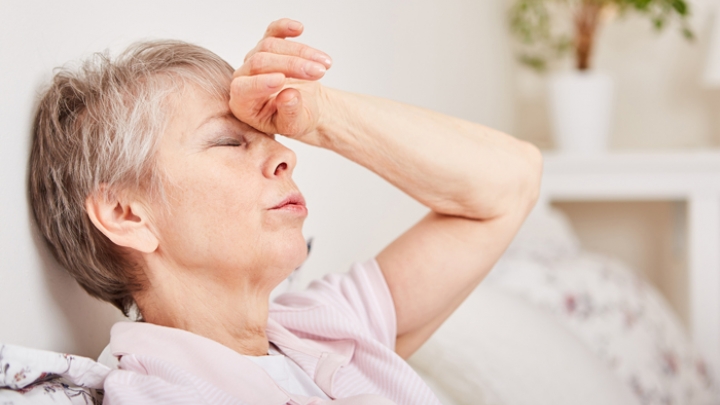(RxWiki News) Sometimes, if you stand up too fast, especially after lying down for long periods, you may get dizzy and faint. This condition is known as orthostatic hypotension.
Sometimes, if you stand up too fast, especially after lying down for long periods, you may get dizzy. It usually goes away in seconds. But it can also cause fainting and falls. This condition is known as orthostatic hypotension.
- Orthostatic means upright
- Hypotension is low blood pressure
Orthostatic hypotension involves a steep temporary drop in blood pressure.
- It can affect those with chronic high blood pressure as well as those with normal or even low blood pressure.
- Your customary blood pressure has nothing to do with it—it’s the quick drop.
- Though it is called hypotension, the lowness is relative. It has nothing to do with chronically low blood pressure.
- It is most common among older people, largely because the small arteries that help regulate blood pressure (by contracting and expanding) become less flexible with age.
Many things can bring on orthostatic hypotension, including:
- Antidepressants
- Antihypertension drugs
- Drugs for erectile dysfunction
- Alcohol
- Dehydration
- Pregnancy
Orthostatic hypotension itself is not a disease. It can, however, be caused or worsened by certain heart, endocrine, and nervous system disorders.
If you experience this kind of dizziness often, especially if it is accompanied by blurry vision, weakness, or fainting, you should get a medical evaluation.
- The evaluation should include a blood pressure check (lying and then standing, or via a tilt table test).
- If you’ve taken a fall, you may be advised to have your balance tested.
- If you’re taking medication that may be involved, perhaps it can be adjusted.
Here are suggestions if you’re prone to dizziness on rising:
- Get up slowly from lying and sitting positions.
- First sit on the side of the bed until you are sure you aren’t dizzy.
- When getting up from a sitting position, rise slowly and hold onto the arms of the chair or otherwise steady yourself for a few seconds.
- Before you stand up, contract the muscles in your abdomen, buttocks, and legs, flex your feet, or raise your arms over your head. Such maneuvers can help maintain blood pressure.
- Once upright, stand still for a few seconds.
- Drink more fluids. However, increasing fluid intake may mean getting up more often at night.
- Avoid taking prolonged hot showers, standing for long periods (especially in the heat), and eating large meals.
- Keep active. Moderate regular exercise, such as brisk walking, may help.

